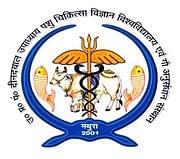Introduction
about Ph. D in Risk Management
A Ph.D. in Risk Management from top university is an advanced academic degree program designed for individuals seeking to
develop expertise in identifying, analysing, and managing risks across various
sectors and industries. Risk management is a multidisciplinary field that
encompasses principles from finance, economics, mathematics, statistics,
engineering, and other disciplines to assess and mitigate potential threats to
organizations, individuals, and society.
The Ph.D. program in Risk
Management typically offers a rigorous curriculum that combines advanced
coursework, research, and practical experience to prepare graduates for careers
in academia, research institutions, government agencies, regulatory bodies,
financial institutions, insurance companies, consulting firms, or multinational
corporations.
Throughout the program,
students engage in intensive coursework covering topics such as financial risk
management, enterprise risk management, quantitative risk analysis, insurance
and reinsurance, operational risk management, credit risk management, market
risk management, and regulatory compliance.
A significant component of a
Ph.D. in Risk Management is the completion of original research leading to a
doctoral dissertation. This research is expected to contribute new knowledge or
insights to the field of risk management, often addressing contemporary risk
issues, developing new risk models or methodologies, or evaluating risk
management practices. Doctoral candidates work closely with faculty advisors
and mentors to develop and execute their research projects, enhancing their
analytical, quantitative, and critical thinking skills in the process.
Graduates of Ph.D. programs
in Risk Management are equipped with the knowledge, skills, and tools to
analyze complex risk scenarios, develop effective risk management strategies,
and make informed decisions to protect organizations, individuals, and assets
from potential harm. They may pursue careers as professors, researchers, risk
analysts, risk managers, compliance officers, or consultants, where they can
contribute to the advancement of risk management theory and practice.
Overall, a Ph.D. in Risk
Management offers a challenging and intellectually stimulating academic journey
for individuals passionate about understanding and managing risks in a dynamic
and uncertain world, and committed to making meaningful contributions to the
field through rigorous research, scholarship, and practical application.
What is
admission process for Ph. D in Risk Management?
The admission process for Ph.D. in Risk Management can vary depending on the specific program and
institution offering the degree. However, here's a general overview of the
typical steps involved in the admission process:
Research Programs: Prospective applicants typically start by
researching Ph.D. programs in Risk Management or related fields offered by
various universities to identify programs that align with their research
interests, career goals, and academic background.
Review Admission Requirements: Applicants should carefully review the
admission requirements and application deadlines for each program they're
interested in. These requirements are usually outlined on the program's website
or in the application instructions.
Prepare Application Materials:
Academic Transcripts: Applicants are required to submit official
transcripts from all previous academic institutions attended, demonstrating
strong academic performance, particularly in relevant coursework such as risk
management, finance, economics, mathematics, statistics, or related fields.
Standardized Test Scores: Some Ph.D. programs may require applicants
to submit scores from standardized tests such as the GRE (Graduate Record
Examination) or GMAT (Graduate Management Admission Test). However, some
programs may waive this requirement or place less emphasis on standardized test
scores.
Letters of Recommendation: Applicants typically need to provide letters
of recommendation from academic or professional references who can speak to
their qualifications, academic abilities, research potential, and suitability
for doctoral studies in Risk Management.
Statement of Purpose: Applicants are usually required to submit a
statement of purpose or personal statement outlining their academic background,
research interests, career goals, and reasons for pursuing a Ph.D. in Risk
Management. This is an opportunity for applicants to articulate their passion
for the field and their research agenda.
Resume/CV: A current resume or curriculum vitae (CV) highlighting academic
achievements, research experience, professional experience, publications,
presentations, and relevant skills.
Writing Sample (if applicable): Some programs may require applicants to
submit a writing sample, such as a research paper, thesis, or academic essay,
to demonstrate their writing and analytical abilities.
Submit Application: Applicants must complete and submit the
online application form for the Ph.D. program in Risk Management, along with
all required supporting documents and application fees, by the specified
deadline.
Interviews (if applicable): Some programs may require or invite
shortlisted candidates for interviews as part of the admissions process. These
interviews provide an opportunity for applicants to discuss their research
interests, academic background, and career aspirations with faculty members or
admissions committees.
Admission Decision: After reviewing all applications and
conducting interviews (if applicable), the admissions committee evaluates each
candidate based on their academic qualifications, research potential, letters
of recommendation, statement of purpose, and other relevant factors. Successful
candidates receive an offer of admission to the Ph.D. program in Risk
Management.
Acceptance and Enrollment: Accepted applicants must formally accept the
offer of admission and complete any additional enrollment requirements
specified by the university or program before the enrollment deadline.
It's important for
prospective applicants to carefully review the admission requirements and
instructions provided by each Ph.D. program they're interested in and to
prepare their application materials thoroughly to increase their chances of
admission. Additionally, reaching out to faculty members or current students in
the program for guidance and advice can be beneficial during the application
process.
What is
eligibility for Ph. D in Risk Management?
Eligibility criteria for Ph.D. in Risk Management can vary depending on the specific program and
institution offering the degree. However, here are some common eligibility
requirements:
Educational Background: Typically, applicants are required to have
completed a master's degree in risk management, finance, economics, business
administration, mathematics, statistics, engineering, or a related field from
an accredited institution. Some programs may accept applicants with a
bachelor's degree, particularly if they demonstrate exceptional academic
performance and relevant professional experience.
Minimum GPA: Many Ph.D. programs have a minimum grade point average (GPA)
requirement for previous academic coursework, which is usually in the range of
3.0 to 3.5 on a 4.0 scale. However, higher GPAs may be expected for more
competitive programs.
Prerequisite Courses: Some Ph.D. programs may require applicants
to have completed specific prerequisite courses in risk management, finance,
economics, mathematics, statistics, or related fields. These courses provide
foundational knowledge necessary for success in the Ph.D. program.
Standardized Test Scores: Some Ph.D. programs require applicants to
submit scores from standardized tests such as the GRE (Graduate Record
Examination) or GMAT (Graduate Management Admission Test). However, some
programs may waive this requirement or place less emphasis on standardized test
scores, particularly if applicants have strong academic or professional
backgrounds.
Letters of Recommendation: Applicants are usually required to submit
letters of recommendation from academic or professional references who can
speak to their qualifications, academic abilities, research potential, and
suitability for doctoral studies in Risk Management.
Statement of Purpose: Applicants typically need to submit a
statement of purpose or personal statement outlining their academic background,
research interests, career goals, and reasons for pursuing a Ph.D. in Risk
Management. This allows applicants to articulate their passion for the field
and their research agenda.
Resume/CV: A current resume or curriculum vitae (CV) highlighting academic
achievements, professional experience, research experience, publications,
presentations, and relevant skills.
Writing Sample (if applicable): Some programs may require applicants to
submit a writing sample, such as a research paper, thesis, or academic essay,
to demonstrate their writing and analytical abilities.
It's important for
prospective applicants to carefully review the eligibility criteria and
application requirements of each Ph.D. program they're interested in to ensure
they meet the necessary qualifications before applying. Additionally, reaching
out to faculty members or current students in the program for guidance and
advice can be beneficial during the application process.
What is
syllabus for Ph. D in Risk Management?
The syllabus for a Ph.D. in Risk Management can vary significantly depending on the specific program and
institution offering the degree. However, here's a general overview of the
topics that may be covered in the coursework component of a Ph.D. program in
Risk Management:
Foundations of Risk Management: An overview of the principles, conceepts, and
theories of risk management, including risk identification, risk assessment,
risk measurement, risk mitigation, and risk monitoring. Emphasis is placed on
understanding the nature of risk and its implications for organizations and
society.
Financial Risk Management: Advanced study of financial risks faced by
organizations, including market risk, credit risk, liquidity risk, and
operational risk. Topics may include risk modeling techniques, value-at-risk
(VaR), stress testing, risk-adjusted performance measures, and risk management
strategies.
Enterprise Risk Management (ERM): Examination of holistic approaches to
managing risks across organizations, integrating risk management practices into
strategic decision-making processes. Topics may include ERM frameworks, risk
appetite and tolerance, risk culture, risk governance, and ERM implementation
challenges.
Quantitative Risk Analysis: In-depth exploration of quantitative methods
and models used in risk analysis and decision-making, including probability
theory, stochastic processes, statistical inference, Monte Carlo simulation,
and Bayesian analysis. Applications to various risk domains are discussed.
Insurance and Reinsurance: Study of insurance principles, products, and
markets, including property and casualty insurance, life insurance, health
insurance, and reinsurance. Topics may include insurance contracts, risk
pooling, risk transfer mechanisms, underwriting, pricing, and claims
management.
Operational Risk Management: Analysis of operational risks arising from
internal processes, people, systems, and external events. Topics may include
risk control self-assessment (RCSA), key risk indicators (KRIs), business
continuity planning, operational risk modeling, and operational risk
measurement frameworks.
Credit Risk Management: Examination of credit risks associated with
lending and investment activities, including default risk, credit spread risk,
and counterparty risk. Topics may include credit scoring models, credit risk
measurement techniques, credit derivatives, and credit risk mitigation
strategies.
Market Risk Management: Analysis of market risks arising from
fluctuations in asset prices, interest rates, exchange rates, and other market
variables. Topics may include market risk measurement methodologies,
value-at-risk (VaR) models, stress testing, scenario analysis, and hedging
strategies.s
Regulatory Compliance and Risk Governance: Study of regulatory requirements, standards,
and guidelines governing risk management practices in different industries and
jurisdictions. Topics may include Basel Accords, Solvency II, Sarbanes-Oxley
Act (SOX), Dodd-Frank Act, and regulatory compliance frameworks.
Research Methods in Risk Management: Training in research design, data
collection, statistical analysis, and interpretation of findings in risk
management research. Emphasis is placed on developing research proposals,
conducting empirical studies, and disseminating research findings.
Seminar Series in Risk Management: Specialized seminars, workshops, or
colloquia featuring presentations by faculty members, guest speakers, or
doctoral students on current research topics, emerging trends, and
interdisciplinary perspectives in risk management.
Dissertation Research: Independent research leading to the
completion of a doctoral dissertation under the supervision of a faculty
advisor, involving the development of a research question, literature review,
data collection and analysis, and presentation of findings.
It's important to note that
the syllabus for a Ph.D. program in Risk Management may vary from one
institution to another and may evolve over time to reflect advancements in the
field and the specific expertise of faculty members. Additionally, students may
have the opportunity to tailor their coursework and research interests to align
with their career goals and academic interests.












